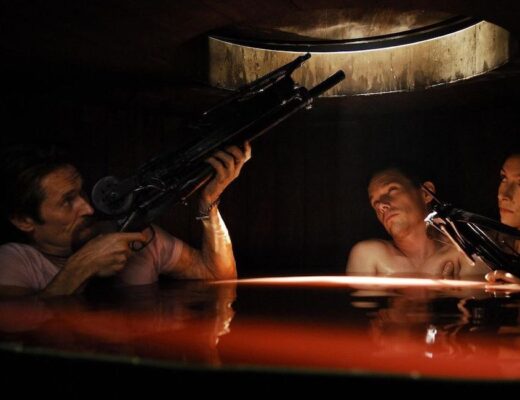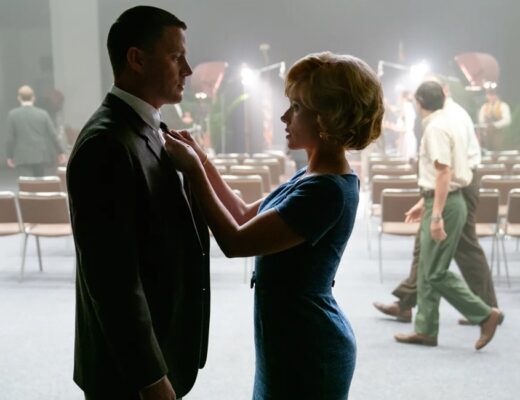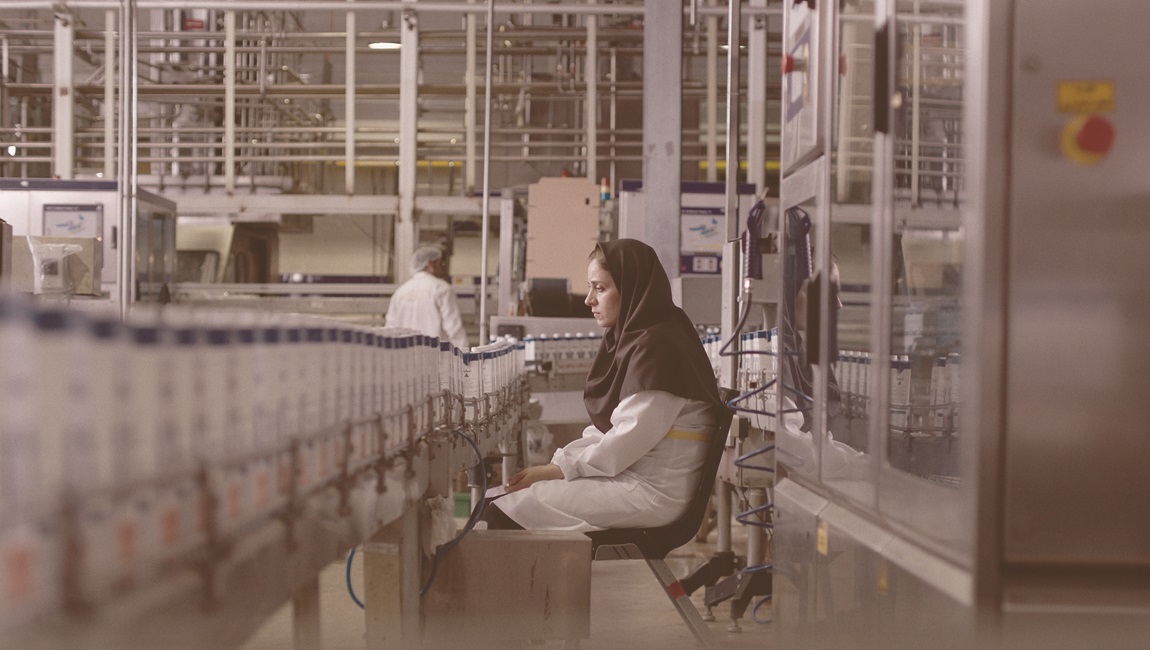Hope is an emotionally brutal, bruising film about the tricky territory that comes between love and loss.
Hope is the kind of film that, on paper at least, sounds like made-for-TV melodrama, its material ripe for big emotions and rampant sentimentality; and in the hands of a Hollywood filmmaker, that’s likely exactly what it would have been. But in the capable hands of Norwegian filmmaker Maria Sødahl, Hope is an unusually perceptive and often raw examination of a longtime couple facing the fallout of a terminal cancer diagnosis. Andrea Bræin Hovig stars as Anja, a theatre artist who discovers that she has an incurable brain tumor resulting from her lung cancer diagnosis a year prior. Her steadfast partner, Tomas (Stellan Skarsgård), is suddenly faced with not only losing the love of his life, but raising their blended family on his own, and watching the woman he loves become a different person due to her harsh new medication. The newfound stress in their lives reopens old wounds and brings new tensions to the fore, as the uncertainty of Anja’s fate hangs over everyone.
Sødahl deftly avoids mawkishness and easy answers to her characters’ trials, and the results are often messy, frustrating, and painful. But there’s an authenticity to the proceedings, which unfold in waves of thorny emotions and confusing decisions, with deeply flawed characters who don’t really know what they want because of the difficulty of merely surviving these feelings. Hovig and Skarsgård navigate these tricky waters beautifully and without vanity, unafraid to allow their characters to be unlikable. Anja is no saint, dying gracefully while the world mourns around her; rather, she’s temperamental, angry, and prone to lashing out. The film’s title, Hope, is an almost cruel irony here, as Anja can’t seem to ever find any. And while the film doesn’t give us a definitive conclusion, it does eventually arrive at a place of tenuous peace, which, in the face of such overwhelming grief, can sometimes be all we can ask for. Hope is not an easy film; its emotions are ragged and raw and unvarnished by the Hollywood sheen that so often covers films about lovers facing impending tragedy. We’re leagues away from the likes of The Fault in Our Stars and Me Before You; Hope is a more emotionally mature and experientially realistic portrayal of love in twilight, and hits viewers harder for it. It’s not a film that attempts to paint a rosy picture of cancer’s ugliness, instead examining the ways in which two imperfect people attempt to navigate an unwinnable situation. Call it the Kobayashi Maru of love, the inevitable end of “till death do us part,” but even in its darkest moments, Sødahl manages to find something akin to hope where her characters can’t, reveling in how even its faintest glimmer can sustain us through immense pain. It’s a difficult film to watch, but Hope is also the rare film that respects viewers enough to be honest with them, and its refusal to skew pat makes for an altogether more powerful experience.







